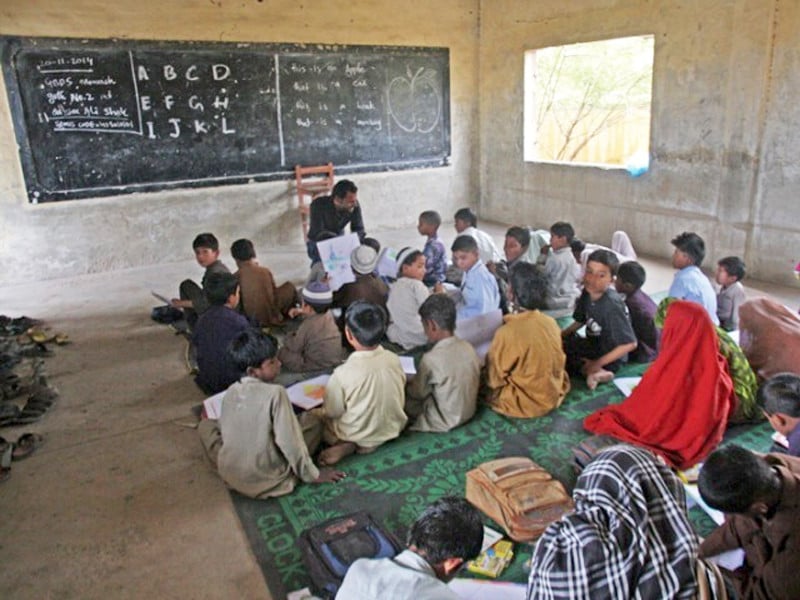Approximately 26.2 million children are currently out of school in the country.
Pakistan’s Education Crisis: Urgent Need for Comprehensive Reforms
The state of education in Pakistan is dire, with significant challenges impacting the sector’s effectiveness and reach. According to the District Education Performance Index (DEPIx) Report 2020-23, prepared by the Planning Division, Pakistan’s education system is categorized as ‘low’ in performance. This designation reflects deep-seated issues, particularly in public financing, which received the lowest score in the report. The data highlights a critical need for increased and strategically targeted investment to address the myriad problems facing the education sector.
In 2010, significant changes were made when the parliament transferred policy, administrative, and fiscal authority over education to the provinces. This shift aimed to decentralize control and improve educational outcomes through local governance. Since then, provincial governments have enacted compulsory education laws, increased budgetary allocations for schools, and introduced various reforms in governance and data management. Despite these efforts, the results have been disappointing. Provincial education ministries, particularly in Sindh and Balochistan, have underperformed compared to their counterparts in Punjab and Khyber Pakhtunkhwa (K-P).

Currently, Pakistan dedicates just 1.9% of its GDP to education, reflecting a clear but insufficient budgetary commitment. Although increasing financial resources is essential, it alone will not resolve the education crisis. The country faces a severe shortage of educational infrastructure and resources. There are approximately 26.2 million children out of school, highlighting the urgent need for more effective and inclusive educational policies.
For those who are in school, the quality of education remains a major concern. Access to quality education is heavily influenced by parental income. Families with higher incomes can afford better educational opportunities, including private schools with superior facilities and resources. In contrast, lower-income families often struggle to enroll their children in schools and must rely on government or low-fee private schools, which frequently provide inadequate education. This disparity underscores the need for systemic changes to ensure that all children, regardless of their socio-economic background, have access to quality education.
Several critical measures must be undertaken to address these issues effectively:
- Increase Educational Infrastructure: There is an urgent need to expand the number of schools, classrooms, and teachers to accommodate the large number of out-of-school children and improve the learning environment for those currently enrolled.
- Revise Assessment and Examination Systems: The current assessment and examination systems need an overhaul to better evaluate student learning and progress. This includes updating curricula and textbooks to ensure they meet contemporary educational standards and are relevant to students’ needs.
- Enhance Teacher Training: Improving the skills and content knowledge of educators is essential for delivering high-quality education. Ongoing professional development and training programs for teachers should be implemented to enhance their effectiveness in the classroom.
- Improve Governance Structures: Strengthening governance in the public sector is crucial for ensuring that resources are used efficiently and that educational policies are implemented effectively. This includes better management of funds and more transparent processes.
- Promote Equity in Education: Addressing disparities in educational access and quality requires targeted interventions to support disadvantaged communities. This includes providing additional resources to underperforming regions and ensuring that low-income families have equal opportunities for quality education.
Implementing these measures promptly is essential for addressing the education crisis in Pakistan. The state has a fundamental responsibility to ensure the provision of quality education, as today’s children are the key to the country’s future progress and development. Without significant and immediate reforms, Pakistan will continue to face challenges in building a strong and equitable education system.


